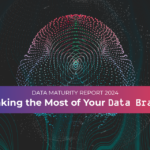With e-commerce sales set to explode this festive season, providing a great deal of opportunity for online businesses, this time of year also brings an increased risk of cyber security threats.
Millions more people will be providing personal information, including addresses and payment card details, across a wider range of online stores. This hasn’t gone unnoticed by the criminal world who want to gain access to this precious customer data and exploit it.
What are the biggest cyber security threats to my website?
The most prevalent risk from cyber criminals during peak trading times comes from DDoS (Distributed Denial-of-Service) attacks. These types of attacks frequently dominate the headlines and are one of the most popular attacks due to them being one of the easiest to launch, as they don’t require any internal access to the website.
DDoS attacks flood systems, servers, or networks with ‘fake’ traffic and, as a result, the system is unable to allow access to genuine shoppers.
Third Party Software
Integrating third party software to deliver your website carries its risks, too, due to potential security flaws in the scripts that these types of services provide. This can leave your website vulnerable to cyber attacks and untrusted code being installed on the system – giving hackers the chance to access your most sensitive data.
SQL Injections
SQL injections are common as, like DDoS attacks, they often don’t require access to your website’s backend. Instead, the attack involves the cyber criminal inserting malicious code into a server that uses SQL (Structured Query Language), giving the attacker visibility across your database and the information it holds.
This attack could be carried out by simply entering code into an insecure form field on a vulnerable website.
Phishing Attacks
An attack which you may have heard of, or may have even fallen victim to yourself, is a phishing attack. This is when an attacker uses a variety of tactics to get you to perform an action, such as clicking on a link or downloading a malicious file.
Related Read: How We’re Tackling the Google Cloud Security Skills Shortage
What’s causing these cyber security threats?
Many organisations aren’t in the habit of conducting regular vulnerability assessments using PEN testing tools, as well as ongoing testing during systems development and updates. But the fact remains that you can’t rely on a once a year PEN test to keep your website secure.
Security tip: Your testing and software development processes should include ensuring that any third-party code integrations have been thoroughly vetted before being implemented.
Secondly, as criminals increasingly seek to target e-commerce websites, the awareness and documentation surrounding vulnerabilities is greater; this is especially true for smaller e-commerce websites that don’t have the budget to utilise sufficient security software. Safety in numbers no longer applies.
Integrated monitoring and logging solutions that are capable of identifying threats to your service and alerting you to potential malicious intent will help to protect your website and data.
Finally, consider establishing an incident management process that’s been thoroughly tested to ensure that if something does happen to your website, there are clear procedures in place to contain the issue and quickly recover service.
Many retailers are now dependent on their online stores to generate the vast majority of sales. This shift in priorities during the past 18 months, paired with the potentially lethal cocktail of a poorly considered security strategy and an influx in traffic, sales and attacks could prove disastrous this season and beyond without the appropriate remediations. Fortunately, help is at hand!
Related Read: Google Cloud Security Principles You Need to Know
What can I do to protect my cloud data?
If you’re concerned about your business’ cloud security posture going into Black Friday, Christmas and beyond – fear not – we can help!
At Appsbroker, cloud security is the backbone of what we do. Not only do we regularly audit our own processes to keep your data safe, but we help organisations ensure security is deeply embedded into every corner of their business.
Backed by the highest international accreditations for quality and security (ISO9001 and ISO27001), you can count on us to deliver on the promise of Zero Trust security – powered by Google Cloud’s watertight infrastructure.
We’re delighted to be able to share our security knowledge and expertise with like-minded organisations who are eager to take the next step and ensure a safe future for their business and customers alike.
Talk to our Cloud Security team today to find out how you can secure a safe future for you and your customers on Google Cloud.
In the meantime, why not sign up to our educational security track to join our security community and start learning today?












